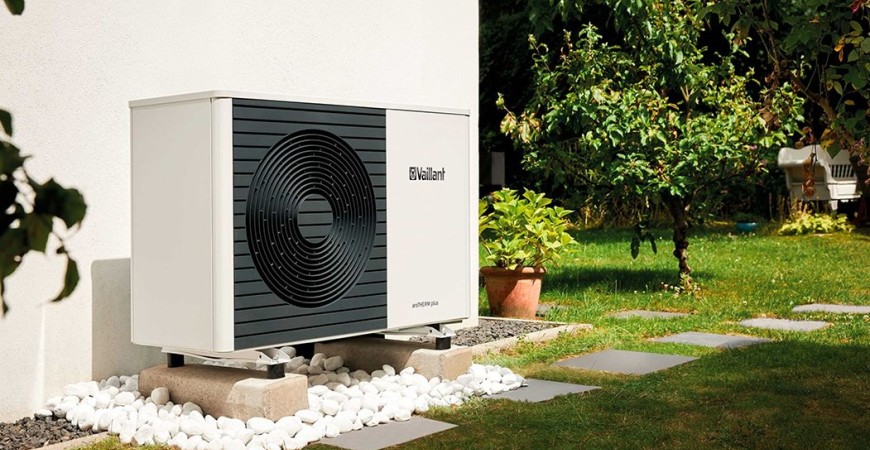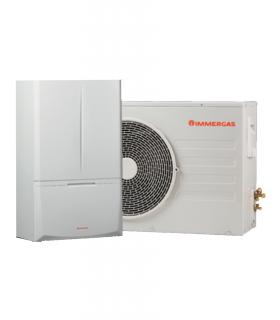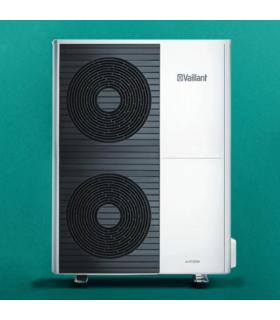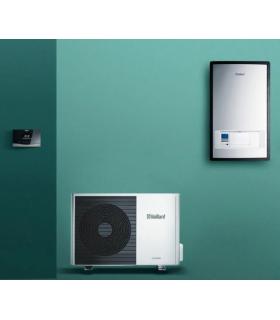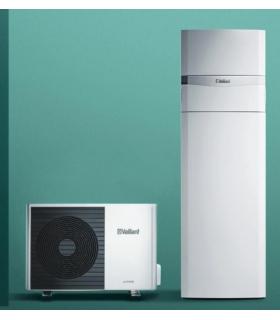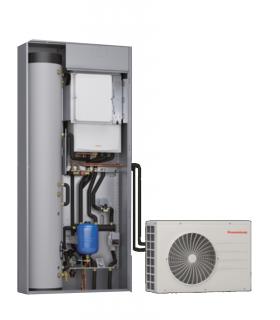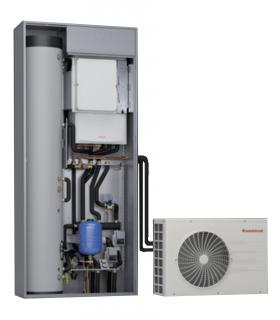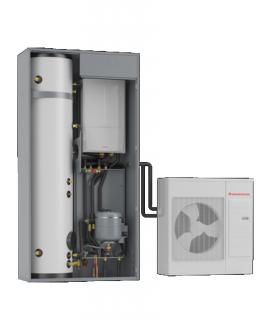Say goodbye to high bills with heat pumps: A complete guide
Complete guide to say goodbye to energy bills with heat pumps
Heat pumps have become an increasingly popular choice for heating and cooling homes.
But what are heat pumps?
In a nutshell, they are devices that transfer heat from one room to another using a source of electricity, which means that they do not burn fossil fuels to produce heat, as traditional boilers do.
Heat pumps are equipped with a compressor that pumps a refrigerant fluid through two heat exchangers.
The refrigerant fluid absorbs the heat from the environment to be cooled and transfers it outside.
Conversely, when you want to heat the room, the heat pump absorbs the heat from the outside air or from the ground and transfers it indoors.
How do heat pumps work?
The operation of the heat pumps is based on the refrigeration cycle technology.
A heat pump works like a refrigerator, but in reverse: instead of removing heat from inside the car, it transfers it outside.
The process of cooling or heating a space begins with heat absorption: in an air-to-air heat pump, warm air is drawn in through a fan and then passes through an evaporator, where the refrigerant fluid absorbs the heat from the 'air.
The refrigerant fluid thus becomes gas and is compressed by a compressor. The hot gas is then conveyed through a condenser where it releases the heat to the outside air. Finally, the gas cools and condenses into a liquid, which returns to the evaporator to start the cycle again.
Types of heat pumps - air to air and air to water
There are two main types of heat pumps: air to air and air to water.
Air-to-air heat pumps are the most common and are used to heat and cool the air inside a home.
Air-to-water heat pumps, on the other hand, are designed to heat water used for underfloor heating or domestic hot water.
Air-to-air heat pumps are relatively easy to install, as they do not require pipe laying or underfloor heating. However, they can be noisy and less efficient than air-to-water heat pumps, especially when outside temperatures are very low.
Air-to-water heat pumps, on the other hand, require the installation of pipes and an underfloor heating system, but are more efficient and quieter than air-to-air heat pumps and are often more convenient to use in renovations.
Advantages of heat pumps
Heat pumps offer several advantages over traditional heating systems.
First, they use a renewable energy source, air or water, and they don't burn fossil fuels, which means they don't produce waste gases that are harmful to the environment.
Furthermore, heat pumps are very efficient, as they transfer heat rather than produce it.
Heat pumps are also safer than traditional heating systems, as they do not use fossil fuels and, consequently, there is no risk of explosions or inhaling toxic gases.
Finally, heat pumps are very versatile and can be used to heat and cool different areas of the house, depending on your needs.
Factors to consider before installing a heat pump
Before installing a heat pump, there are a few factors to consider.
First, it is important to choose the right type of heat pump for your needs.
Air-to-air heat pumps are generally cheaper and easier to install, but may not perform well in very cold climates.
Air-to-water heat pumps, on the other hand, are more expensive and require radiator or underfloor heating to be installed, but are more efficient and quieter.
Secondly, it is important to choose the right size for your home. A heat pump that is too large may be expensive to purchase and install, while a heat pump that is too small may not be able to heat or cool your entire home effectively.
Finally, it is important to consult a professional for the installation of the heat pump and for its maintenance. Improper installation or insufficient maintenance could reduce the efficiency of the heat pump and increase energy costs.
Installation and maintenance of heat pumps
The installation and maintenance of heat pumps are important to ensure correct and efficient operation of the system.
The installation must be carried out by a qualified professional who is familiar with the local and national requirements for installing heat pumps.
Heat pump maintenance includes cleaning the air filters, checking the levels of refrigerant and the lubrication of moving parts.
Furthermore, it is important to periodically check the efficiency of the heat pump and replace defective or wearable parts.
Cost analysis of heat pumps
Heat pump costs vary depending on the type of heat pump you choose, the size of your home, and your geographic location.
In general, air-to-water heat pumps are more expensive than air-to-air heat pumps, as they require the installation of underfloor heating or radiators.
However, heat pumps are generally more efficient than traditional heating systems which means that energy costs can be significantly reduced. In addition, many local authorities offer tax incentives or financing for the installation of heat pumps.
Frequently asked questions about heat pumps
How much does it cost to install a heat pump? The cost of installing a heat pump depends on the type of heat pump you choose, the size of your home and your geographic location. In general, air-to-water heat pumps are more expensive than air-to-air heat pumps.
Do heat pumps work well in very cold climates? Air-to-air heat pumps may not perform well in very cold climates, but air-to-water heat pumps are designed to work efficiently even in cold temperatures. In particular cases, it is possible to create a hybrid system in which the heat pump is combined with a condensing boiler for optimal operation
Are heat pumps noisy? Air to air heat pumps can be noisy, but air to water heat pumps are generally quieter. Choosing a good quality heat pump reduces sound power levels as the best brands on the market are constantly developing new technologies in this sense.
The pumps are efficient, environmentally friendly and safe, but require proper installation and maintenance to function properly.
Choosing the right type and size for your home and considering the financing options available can help reduce energy costs and contribute to greater environmental sustainability.
If you are thinking of installing a heat pump, discover the Acquaclick online range and contact us for a personalized quote and to choose the best solution for your needs.


